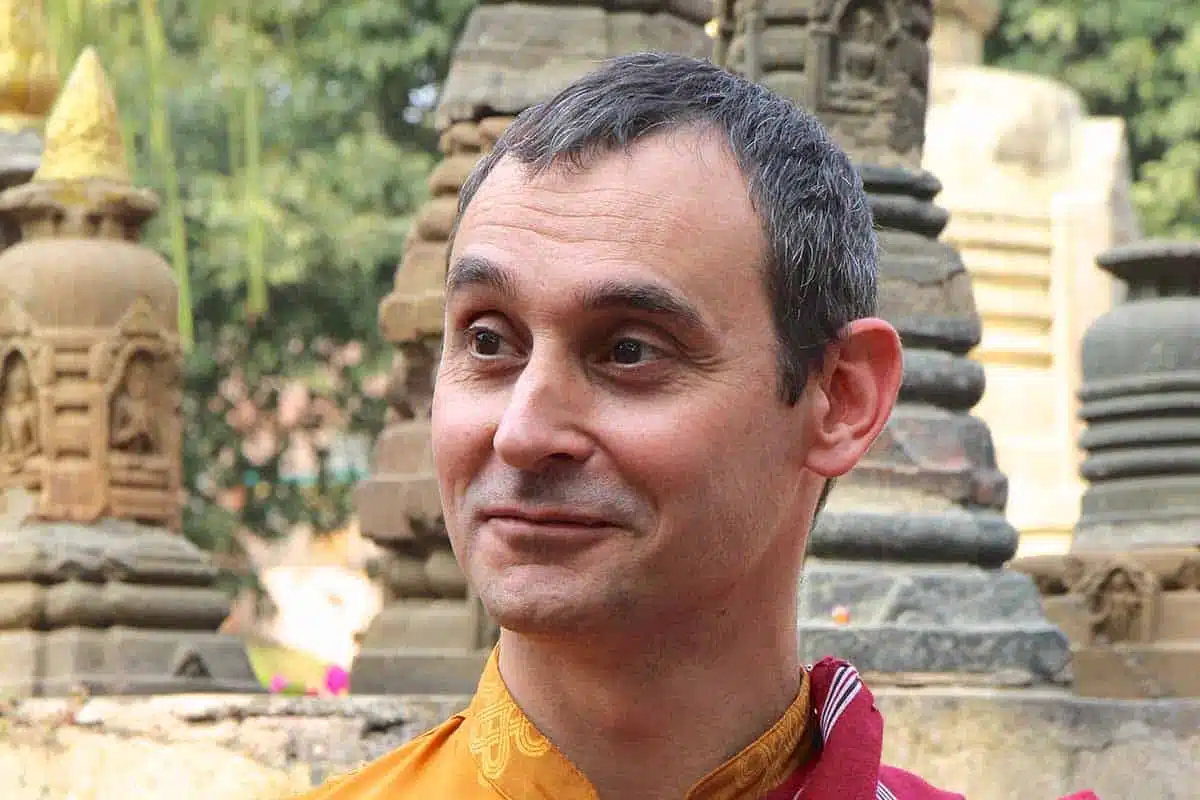A Precious Human Birth

Written By Mila Khyentse
Blog | The Dzogchen Journey
In “A Precious Human Birth”, Mila Khyentse talks about the difficult conditions that accompany birth and the practice of the path.
Series: Difficult conditions in Dzogchen
A Precious Human Birth
There are many difficult, even impossible, conditions for practicing Great Perfection in the Indian and Tibetan traditions. These classic and very important reflections help us realize the preciousness of life and our human existence.
Whether or not we believe in several kinds of existence or an almost infinite number of existences, these reflections invite us to recognize how fortunate we are—some would say “good karma!”—to be human on this earth, and to acknowledge the responsibility that comes with it. There is a classic list of these called the “eight freedoms and ten advantages.” Let Chökyi Dragpa enlighten us on this subject:
“There are eight freedoms and ten advantages. First, if you were born in the realms of hell, hungry ghosts, or animals, you would suffer from intense heat and cold, hunger and thirst, or servitude, and it would be impossible for you to practice Dharma. If you were born among the long-lived gods, it would also be impossible because you would have no idea of practicing Dharma. The Buddha’s teachings are not found in the uncivilized border regions, and so it is also impossible to live there.
If you were born in a world where a Buddha has not appeared, or during a dark kalpa, it would be impossible because even the words “Three Jewels” (Buddha, Dharma, Sangha) would be unknown to you. If you were born without the capacity for understanding, it would be impossible to practice the Dharma because you would not be able to understand the meaning of the teachings. When you possess a physical body free from these eight conditions in which there is no chance of practicing the Dharma, it is said that you possess a support for the practice of the Dharma endowed with the eight freedoms.” [1]
“It is said that if all the conditions are not met, then wishing they were is the best thing to do. They will eventually come together if we work hard.”
Thus, we can already determine that there are “birth conditions” that make it difficult, if not impossible, to practice Buddhism and Dzogchen. For example, being completely overwhelmed by suffering in the hell realms, makes it impossible to do anything else. The same is true in other types of existence: obsessed with greed, stupidity, jealousy, or pride, beings cannot do anything else. Being born as a human being is therefore the only possibility among all the births considered by the tradition. The second set of impossible conditions is not having access to the teachings, whether due to their unavailability or our inability to put them into practice. Then there are the ten advantages. Let’s continue with Chökyi Dragpa:
“Secondly, the ten advantages are divided into five personal advantages and five circumstantial advantages. Regarding the former, being born as a human being means having adequate physical support to practice Dharma. Having the five faculties [2] enables you to study the teachings and put them into practice. Being born in a central country means being born in a place where the teachings are available. A lifestyle that is neither harmful nor incorrect means that your body, speech, and mind are in harmony with the Dharma. Having faith in the Buddha’s teachings means recognizing that they outline a specific path to liberation from cyclic wandering (saṃsāra) and to a state that surpasses that of the worldly gods. When one possesses these five qualities, the five personal advantages are said to be complete. For the five advantages due to circumstances to be present, a Buddha must have appeared — an event as rare as the appearance of an Uḍumbara flower (which cures all illnesses) — and taught the three cycles of the Dharma, and the teachings must also have survived without deterioration. There must also be extraordinary friends who have adopted the teachings, and a spiritual teacher or friend must has accepted you. These five elements are known as the five advantages due to circumstances.”
These are all the conditions necessary for practicing Buddhism and Great Perfection. Without them, the path becomes too difficult to follow. For instance, we may understand some teachings, yet be unable to put them into practice. In fact, it is impossible to even gain access to the Great Perfection, for example by being born in the world of the gods. This may seem unfair to those of us who have been raised with the idea that the best is yet to come or that, with enough effort, we can achieve anything. However, in these ancient traditions, the path depends on all of these conditions; our will alone is not enough. It is said that if all the conditions are not met, then wishing they were is the best thing to do. They will eventually come together if we work hard. Of course, the time of the Great Perfection is not the same as ours. It may take a number of lifetimes.
[1] From “A Torch for the Path to Omniscience”. You will find the full text here: https://www.lotsawahouse.org/tibetan-masters/chokyi-drakpa/a-torch-for-the-path BACK
[2] Power of conviction, power of perseverance, power of attention, power of concentration, power of discernment. BACK
More Posts
Diebu
In this article, “Diebu,” Mila Khyentse discusses the places of the lineages, particularly that of Diebu.
Be authentic!
In "Be Authentic!" Denis explores authenticity in the master-disciple relationship, a living space in which the nature of mind is recognized.
The First Day
In this article "The First Day", Mila Khyentse talks about the first day of the Tibetan year and what we usually do in a primordial way.




